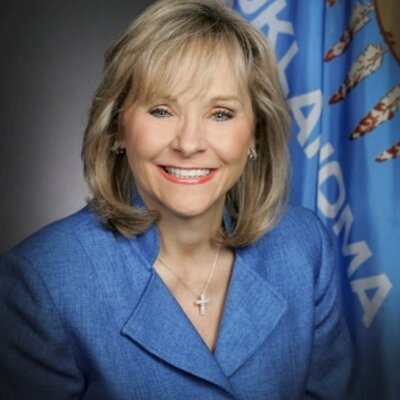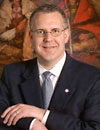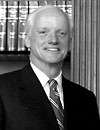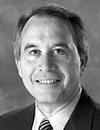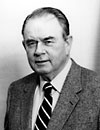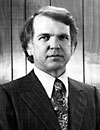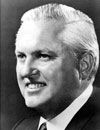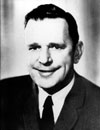This website uses cookies so that we can provide you with the best user experience possible. Cookie information is stored in your browser and performs functions such as recognizing you when you return to our website and helping our team to understand which sections of the website you find most interesting and useful. Please see our privacy policy for more information.
Oklahoma
Gov. Leon Chase Phillips
- January 9, 1939 - January 11, 1943
- Democratic
- December 9, 1890
- March 27, 1958
- Missouri
- Epworth University (now Oklahoma City University); University of Oklahoma
- Married twice—Myrtle Ellenberger (divorced 1961), two children; Helen Conklin
- Army
About
LEON CHASE PHILLIPS was born in Worth County, Missouri. When he was two, his family moved to Custer County, Oklahoma Territory, where he was educated in the public schools. He attended Epworth University (now Oklahoma City University) and received an LL.B. degree from the University of Oklahoma in 1916, after which he opened a law office in Okemah, Oklahoma. He served in Artillery Officers’ Training School during World War I. He was a member of the Okemah School Board from 1922 to 1926 and served as Secretary of the Okfuskee County Elections Board from 1926 to 1932. He was a special member of the Oklahoma Supreme Court in 1927 and 1928 and a member of the Oklahoma House of Representatives from 1933 to 1938 (Speaker in 1935 and Democratic Minority Leader in 1937). In his first year as governor, Phillips presented a statue of Will Rogers for inclusion in the U.S. Capitol Rotunda. During his gubernatorial term, bonds were issued to eliminate the outstanding state debt and a balanced budget amendment to the state Constitution was adopted. Phillips opposed construction of multiple purpose dams in Oklahoma and used the National Guard to block completion of the Grand River Dam Project, but was overruled by a federal court injunction. The final years of his term were focused on mobilization for World War II, which helped bring Oklahoma out of the Great Depression. And he chaired the Interstate Oil Compact Commission from 1940 to 1942. Because of his disagreement with New Deal programs, Phillips ultimately broke with the Democratic Party and supported the Republican ticket during the 1942 election. After leaving office, he returned to his law practice in Okemah.
Source
Sobel, Robert, and John Raimo, eds. Biographical Directory of the Governors of the United States, 1789-1978, Vol. 3. Westport, CT: Meckler Books, 1978. 4 vols.
The National Cyclopaedia of American Biography, Vol. 56. New York: James T. White & Company.


